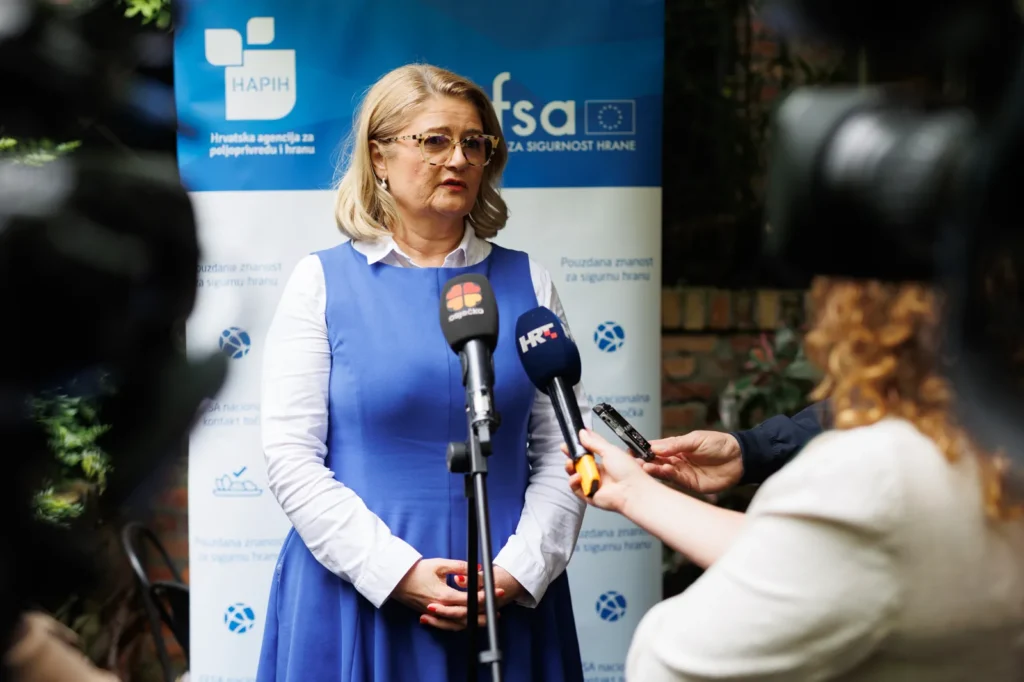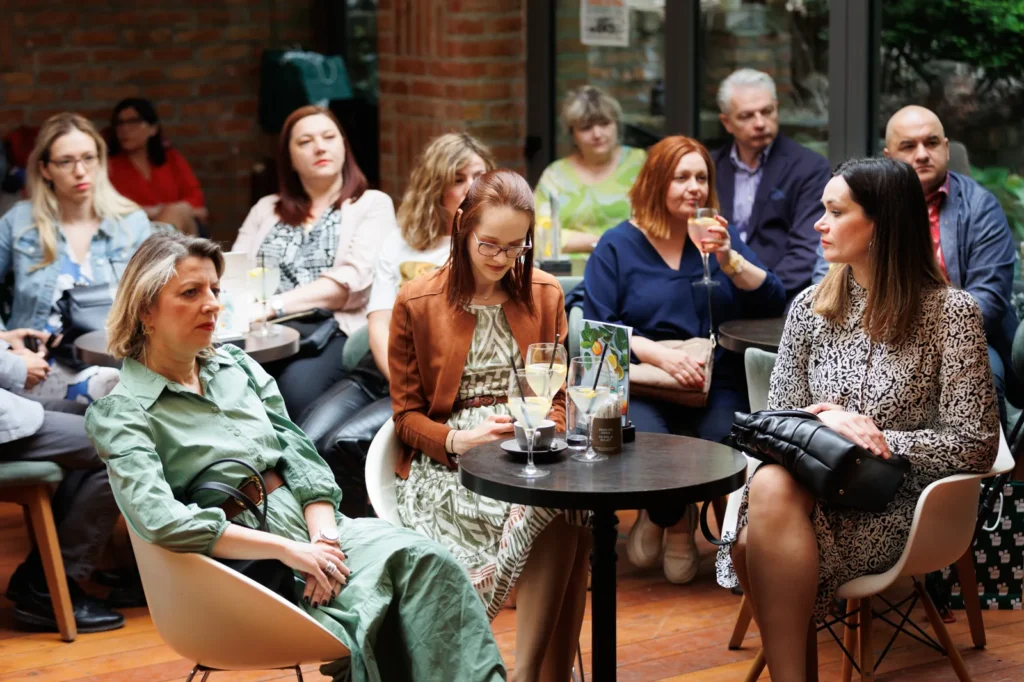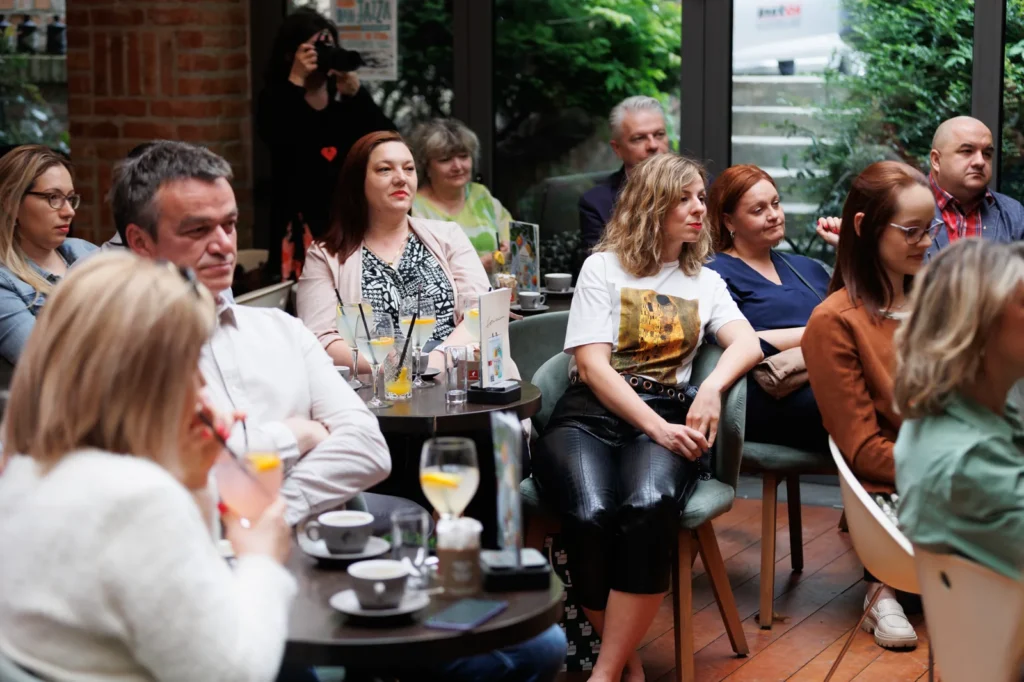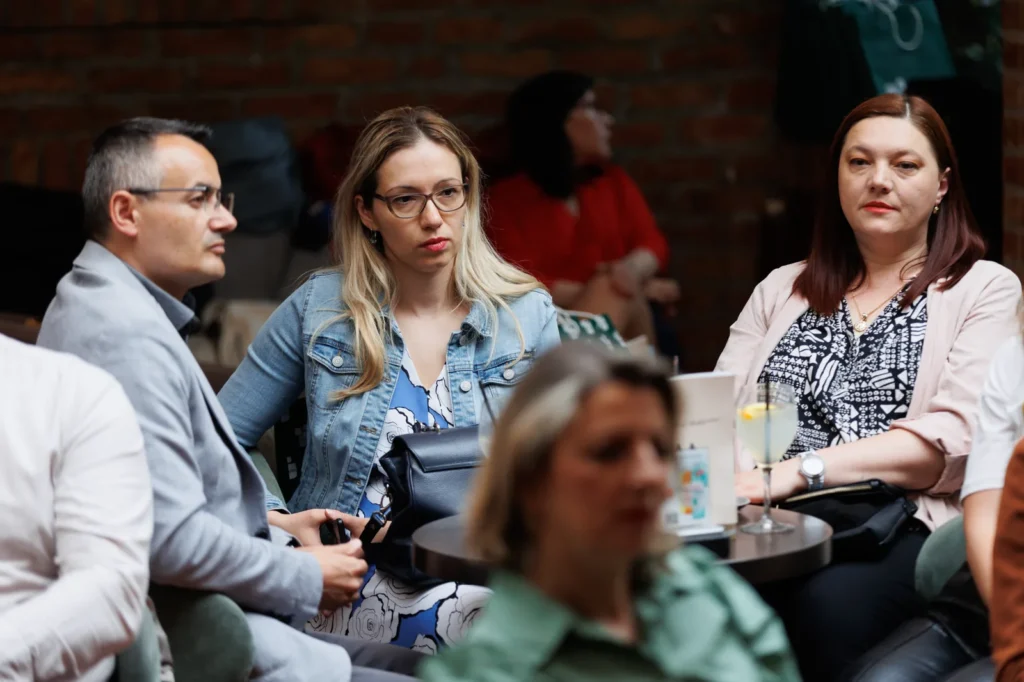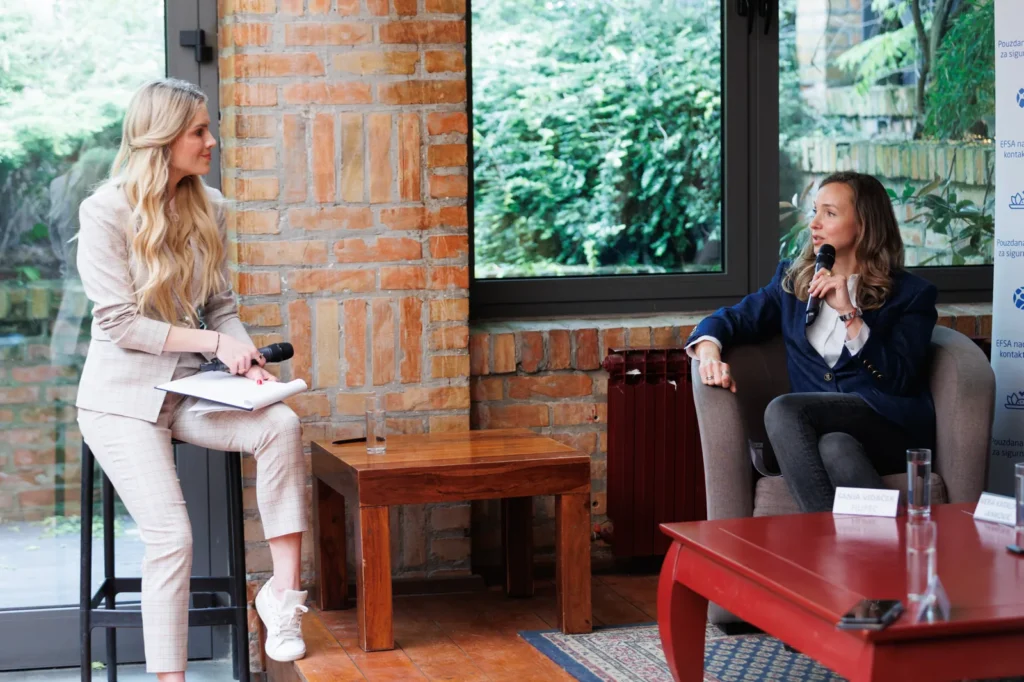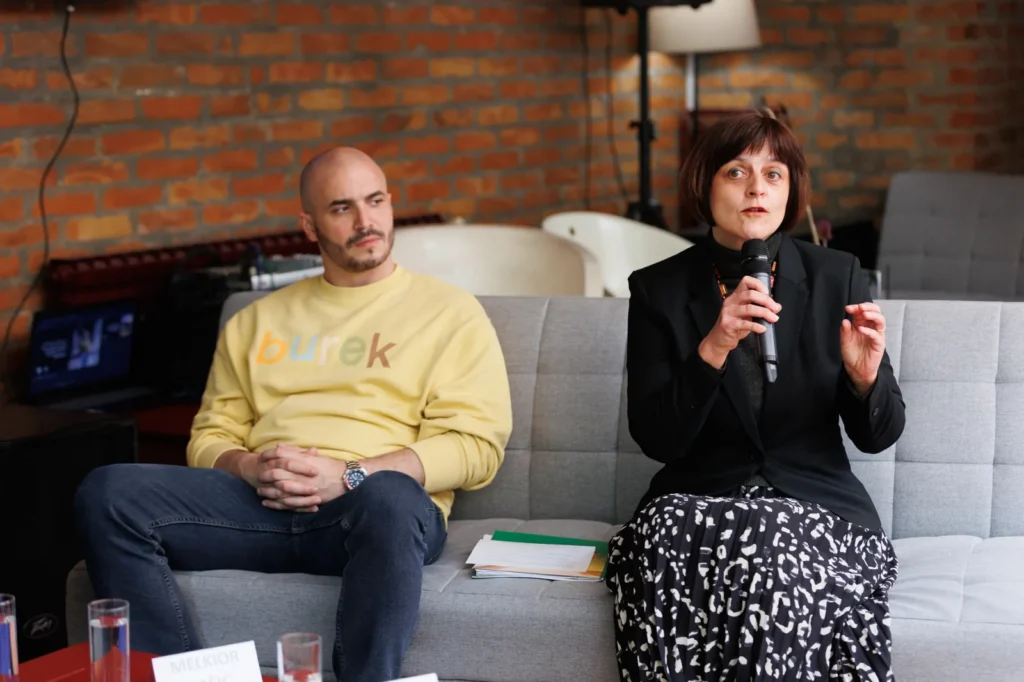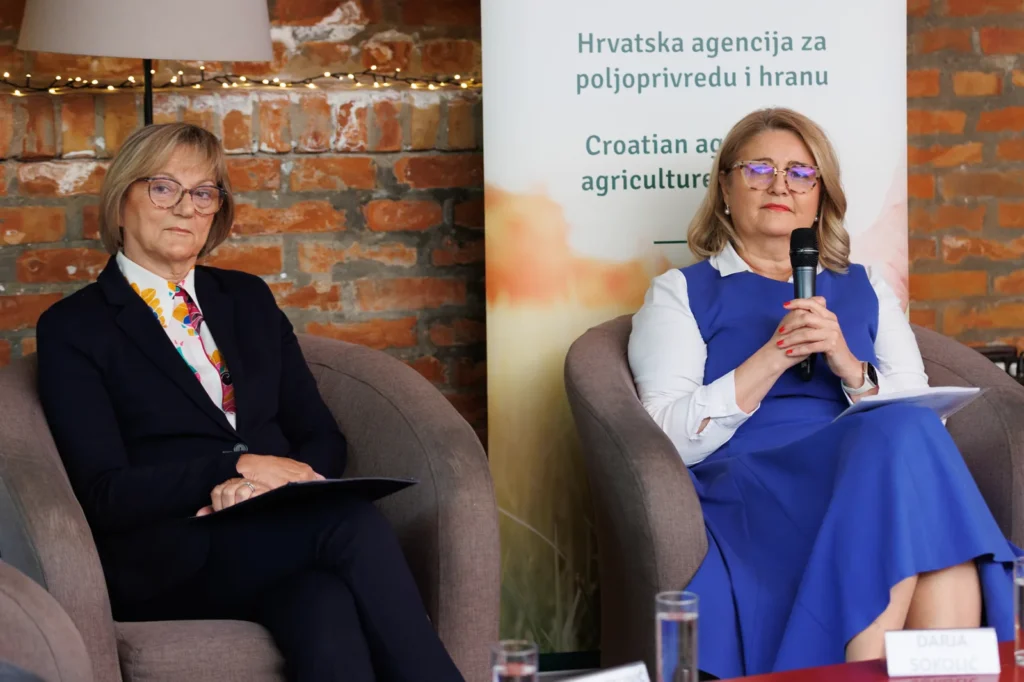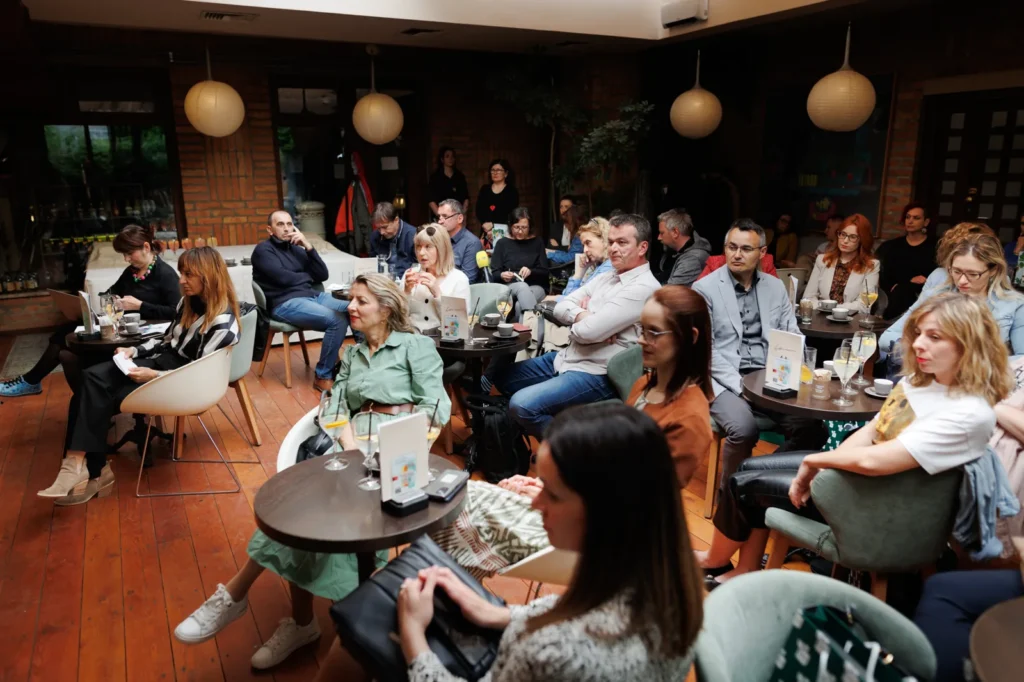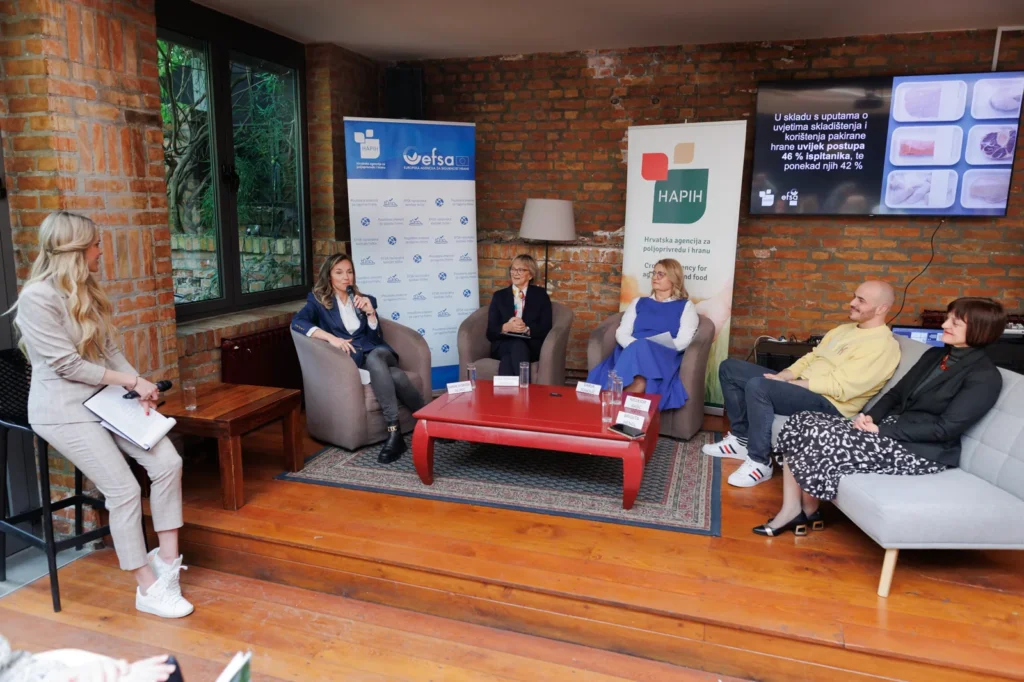The Croatian Agency for Agriculture and Food (HAPIH) presented today in Osijek the results of a research study on food hygiene practices of Croatian citizens, conducted throughout Croatia in 2022. The results showed that a part of the respondents doesn’t pay enough attention to food safety, highlighting the need for continuous consumer education on proper food handling.
According to the research conducted on a representative sample of participants responsible for food purchasing and preparation in households, women are responsible for food preparation in 81% of cases. The first contact with food occurs at the store, where the most common mistake is made in the order of purchasing. Nearly half of the respondents don’t buy frozen and refrigerated food at the end of their shopping, contrary to recommendations. Additionally, the majority of participants don’t use portable coolers or thermal bags for frozen food (86%) and/or refrigerated food (93%), which is particularly important during the summer heat.
Consumer education is an ongoing process
94% of respondents check the expiration dates always or sometimes, and 88% follow the instructions on packaging regarding storage and preparation conditions.
Regarding leftovers from prepared and consumed food at home, 12% of participants throw them. In Zagreb, the highest percentage of participants (25%) reported throwing food leftovers, while in other regions, the percentage ranges from 7% to 12.5%. Individuals between 40 and 50 years old throw the most leftovers, while those over 70 years old the least (only 6%).
Although it is recommended not to keep prepared food at room temperature for more than two hours, over 30% of respondents leave it outside the refrigerator longer than the recommended time. During food preparation, it is necessary to use separate utensils for raw and cooked food, a practice followed by 59% of respondents, which prevents the transfer of microorganisms to food that will not be thermally processed before consumption.
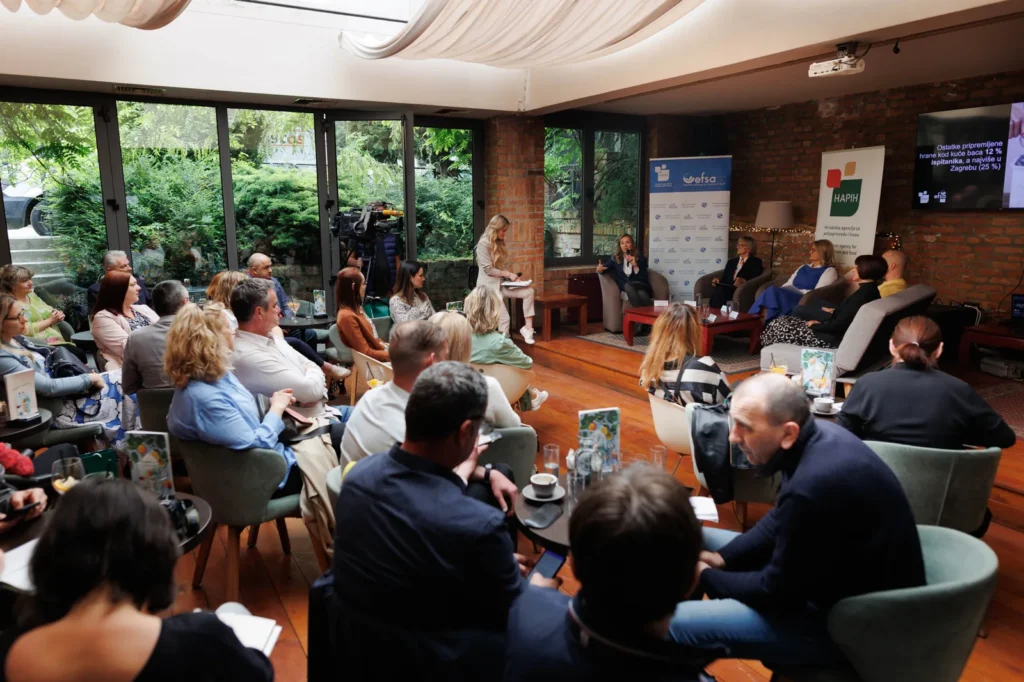
“This is the first national survey on the habits of Croatian citizens regarding food purchasing, preparation and storage. The information we collected gives us an insight into the behaviour of our consumers and will serve as a basis for targeted communication to educate them about food handling practices and emphasize the importance of certain actions that they have not paid attention to so far. This research is also proof that consumer education is a continuous process that needs to be adapted to the specific national context to achieve the best possible result,” said Dr Darja Sokolić, director of HAPIH, which conducted the research.
Food handling, food waste and novel food in the focus of the panel discussion
Safe household food handling practices were the topic of the panel discussion in which, along with Dr- Darja Sokolić, participated Vera Katalinić-Janković, MD, special adviser to the Minister of Health, Dr Brigita Hengl, Expert Advisor – Specialist at HAPIH, Prof. Sanja Vidaček Filipec, PhD, professor at the Faculty of Food Technology and Biotechnology University of Zagreb, and famous Croatian chef Melkior Bašić.
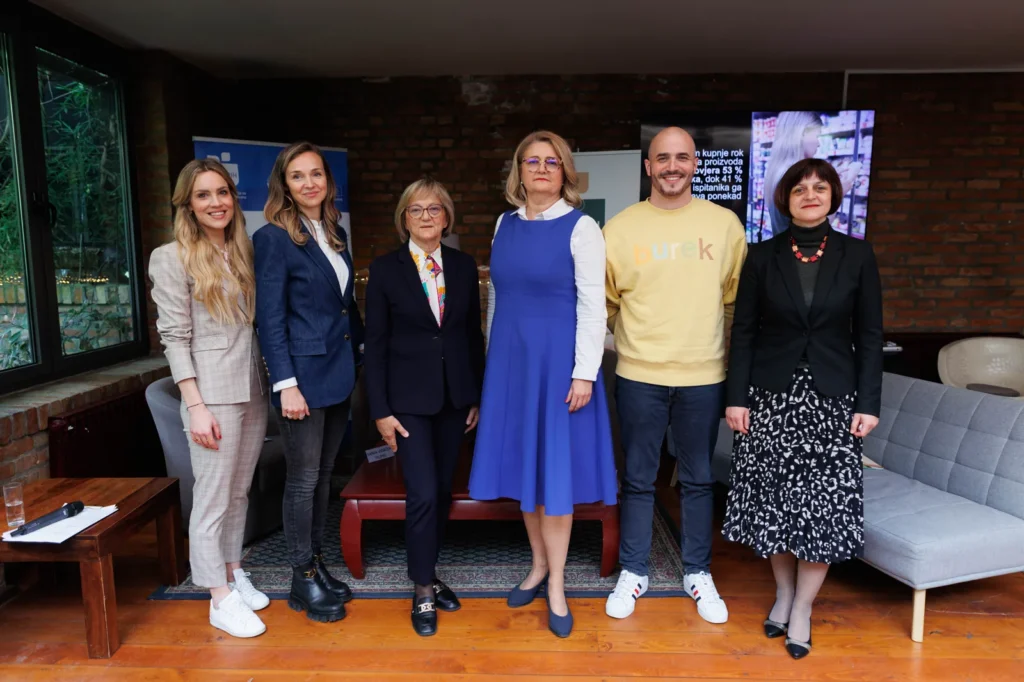
In addition to food hygiene habits and the related topic of food waste, the panel also discussed the topic of novel foods.
“Food plays an important role in human health. To protect consumer health, any food that was not widely consumed in the EU before May 1997 must go through an approval process before it can be placed on the Croatian market. This can refer to new foods, food from new sources, new ingredients used in food as well as new ways and technologies for producing food. For example, novel foods include chia seeds, quinoa, and edible insects. The Ministry of Health is in charge of monitoring novel food in Croatia”, commented Vera Katalinić-Janković, MD.
Chef Melkior Bašić discussed the golden rules in the kitchen that guarantee food safety and contribute to reducing food waste: “Before you begin, you need to have a clear vision of what you want to cook and plan your shopping to minimize food waste. People often make mistakes when buying fruits and vegetables, which leads to frequent throwing of these foods. For example, onions, carrots and root vegetables can be stored longer, but peppers, broccoli, cauliflower, or lettuce can be stored for up to three days. Every part of the food can be used in the kitchen, such as bones or vegetable scraps for broth, and some ingredients that we know we won’t be able to use in time can be sliced and frozen for later use in stews. In terms of preparation, all ingredients should first be thoroughly washed well, the working surface should be regularly cleaned, and special care should be taken to use separate cutting boards and knives for raw and cooked food.”
EFSA’s EU Choose Safe Food for the third year in a row
This panel, including the presentation of the research results, is an introduction to this year’s #EUChooseSafeFood campaign, which starts on May 16, 2023, in 16 EU Member States. The campaign in Croatia is being conducted for the third consecutive year by HAPIH in collaboration with the European Food Safety Authority (EFSA), the highest advisory body of the European Union in the field of food safety. It is also supported by the Ministry of Agriculture, the Ministry of Health, Faculty of Food Technology and Biotechnology at the University of Zagreb, Faculty of Food Technology at the University of Osijek, Faculty of Agrobiotechnical Sciences in Osijek, Faculty of Veterinary Medicine at the University of Zagreb, Croatian Chamber of Economy, Croatian Institute of Public Health, Teaching Institute for Public Health “Dr Andrija Štampar”, Croatian Association of Nutritionists, Centre for Education and Informing Consumers, European Consumer Excellence Center Zagreb, and the Hospitality and Tourism School in Osijek. Its goal is to explain sometimes complex and professional information about food safety to the consumers, inform them in a simple and easy-to-understand manner, and encourage critical thinking about the food they consume.
The results of the first two years of the campaign have shown that it positively influences consumer awareness and understanding of food safety in the EU. The proportion of those who became aware that scientists stand behind food safety increased from 2 out of 10 in 2021 to 4 out of 10 in 2022. The level of trust in the EU food safety system has also increased: 70% of those who were exposed to the campaign stated in 2022 that they trust the EU and national institutions when it comes to food safety, representing a 10% increase compared to 2021.
How to properly handle food in our households, reduce food waste and learn about the safety of novel foods are the key topics of this year’s campaign, which, apart from Croatia, is carried out in fifteen other European countries. In addition to the focus topics, consumers can learn more about foodborne illnesses, food contaminants, animal welfare, plant health, allergens, additives, packaging, nutritional supplements and bee health. All topics and useful tips can be found on the dedicated #EUChooseSafeFood website.
